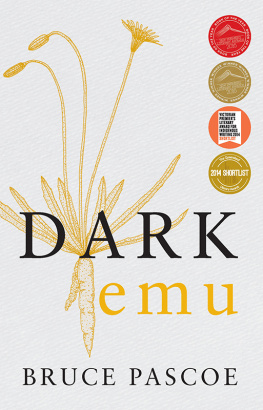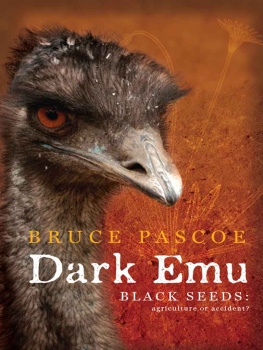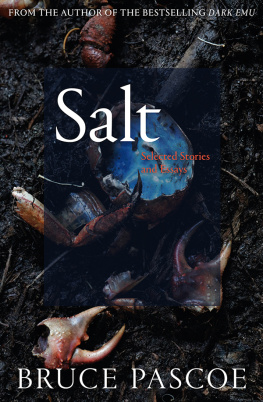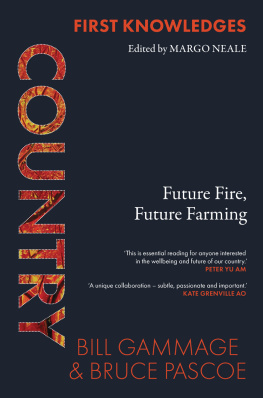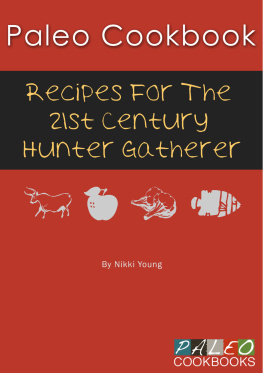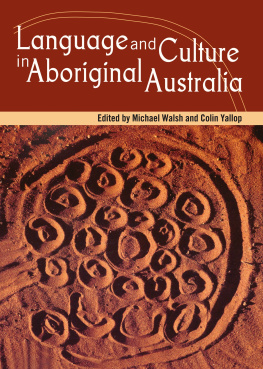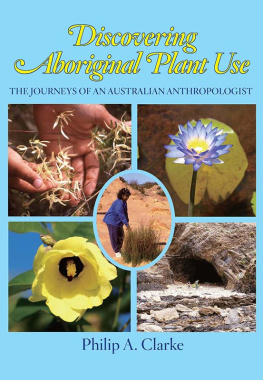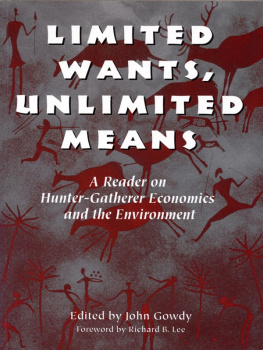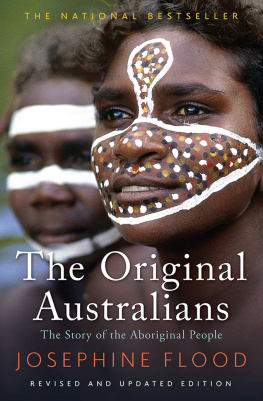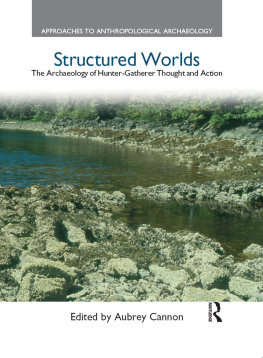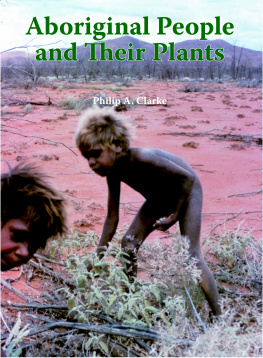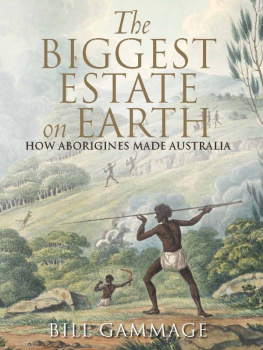
Baiame, the creator Spirit Emu, left the earth after its creation to reside as a dark shape in the Milky Way. The emu is inextricably linked with the wide grasslands of Australia, the landscape managed by Aboriginals. The fate of the emu, people, and grain are locked in step because, for Aboriginal people, the economy and the spirit are inseparable. Europeans stare at the stars, but Aboriginal people also see the spaces in between where the Spirit Emu resides.
DARK EMU
Dark Emu won both the Book of the Year Award and the Indigenous Writers Prize in the 2016 New South Wales Premiers Literary Awards.
Bruce Pascoe, who has been writing for many years, is currently working on two films for ABC TV, a novel and various other contributions to Aboriginal writings in Australia. He lives at Gipsy Point, Victoria, and has a Bunurong, Tasmanian and Yuin heritage.

Photograph courtesy Matthew Newton, Rummin Productions
Dark Emu
Aboriginal Australia and the birth of agriculture
BRUCE PASCOE

First published 2014
Reprinted 2014 x3, 2015 x2, 2016 x7, 2017 x3, 2018 x2
New edition 2018
Magabala Books Aboriginal Corporation, Broome, Western Australia
Website: www.magabala.com
Email:
Magabala Books receives financial assistance from the Commonwealth Government through the Australia Council, its arts advisory body. The State of Western Australia has made an investment in this project through the Department of Local Government, Sport and Cultural Industries. Magabala Books would like to acknowledge the generous support of the Shire of Broome, Western Australia.
Copyright Bruce Pascoe, Text, 2018
Copyright Photographs, maps, illustrations as credited
The author asserts his moral rights.
All rights reserved. Apart from any fair dealing for the purposes of private study, research, criticism or review, as permitted under the Copyright Act, no part of this publication may be reproduced by any process whatsoever without the written permission of the publisher.
Cover Design Jo Hunt
Typeset by Post Pre-Press Group
Printed and bound by Griffin Press, South Australia

To the Australians
Contents
Introduction
After my book on the colonial frontier battles, Convincing Ground, was published in Australia in 2007, I was inundated with more than 200 letters and emails many of them from fourth-generation farmers and Aboriginal people. Farmers sent me their great grandparents letters and documents about the frontier war, and Aboriginal people sent new information on many of those same battles.
I already had a pile of information collected from research conducted too late to make it into Convincing Ground, and, after following the leads from correspondents, I discovered much more.
I began to see a consistent thread running through the material: not only that the frontier war had been misrepresented in what we had been taught in school, but also that the economy and culture of Aboriginal and Torres Strait Islander people had been grossly undervalued.
I knew that if I were to use all the new material in another book, I would have to begin from the sources upon which Australias idea of history is based: the journals and diaries of explorers and colonists.
These journals revealed a much more complicated Aboriginal economy than the primitive hunter-gatherer lifestyle we had been told was the simple lot of Australias First People. Hunter-gatherer societies forage and hunt for food, and do not employ agricultural methods or build permanent dwellings; they are nomadic. But as I read these early journals, I came across repeated references to people building dams and wells; planting, irrigating, and harvesting seed; preserving the surplus and storing it in houses, sheds, or secure vessels; and creating elaborate cemeteries and manipulating the landscape none of which fitted the definition of a hunter-gatherer. Could it be that the accepted view of Indigenous Australians simply wandering from plant to plant, kangaroo to kangaroo, in a hapless opportunism, was incorrect?
It is exciting to revisit the words of the first Europeans to witness the pre-colonial Aboriginal economy. In Dark Emu, my aim is to give rise to the possibility of an alternative view of pre-colonial Aboriginal society. In reviewing the industry and ingenuity applied to food production over millennia, we have a chance to catch a glimpse of Australia as Aboriginals saw it.
Many readers of the explorers journals see the hardships they endured, and are enthralled by their finds of grassy plains, bountiful rivers, and sites where great towns could be built; but by adjusting our perspective by only a few degrees, we see a vastly different world through the same window.
_________
The first colonists had their minds wrought by ideas of race and destiny; by the rumours heard as children of the great British Empire. They were immersed in these stories as infants, and later while marching in to school to Men of Harlech, standing to attention for God Save the King, and poring breathlessly over the stories of Horatio Nelson, the Christian Crusaders, King Arthur, Oliver Cromwell, and, of course, Captain James Cook.
Europe was convinced that its superiority in science, economy, and religion directed its destiny. In particular, the British believed that their successes in industry accorded their colonial ambition a natural authority, and that it was their duty to spread their version of civilisation and the word of God to heathens. In return, they would capture the wealth of the colonised lands.
Charles Darwins theory of evolution was still to come, but the basis of it, the gradual ascent from beast to civilised man, dominated the psychology of Europe at the time. The first British visitors sailed to Australia contemplating what they were about to find, and innate superiority was the prism through which their new world was seen.
When Darwins theory was put forward, it gave comfort to those who believed it was their right and duty to occupy the empty land. As anthropologist Tony Barta commented:
The basis of that view was historical: it held that the advance of civilization was a triumphal progress, morally justifiable and probably inevitable. When Darwin lent his great gifts and influence to making the disappearance of peoples natural as well as historical, his theory could serve as an ideological cover for policies abhorrent to his humanitarian and humanist principles. Darwins fateful confusion of natural history and human history would be exploited fatally by others.
Under the influence of these cultural certainties, how would it have been possible for the colonists not to believe that Englishmen were on the steepest ascent of human endeavour? How would it have been possible for them not to believe that the world was their entitlement, and their possession of it ordained by their God?
To understand how the Europeans assumptions selectively filtered the information brought to them by the early explorers is to see how we came to have the history of the country we accept today. Linda Tuwahi Smith provides an analysis of imperialism, which reveals
Next page
